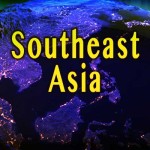
Question 1:
As I know little about the other countries, I have one short remark regarding Thailand and then one question. When Acharn Pasuk said that media is at its worse state since the emergence of modern Thai history, I think there is one interesting thing that is not reflected in that remark. In the past three months, since Thaksin started to have problems, suddenly at least part of the media has become much more free, at least by December. Matichon and even The Nation have changed tone, becoming more negative. This is kind of interesting if you compare it to what the Thai media were like in the late 1960s or early 1970s (I love to go back and read old newspapers). I think it is not quite fair to say that the media is more controlled right now than back then. That’s the short remark.
My question is on agenda, management, and leadership. One very interesting thing is how Thaksin has so badly mismanaged the privatization issue. When you listen to the unions and the groups who have been fighting privatization, basically I am sure many of them voted for Thaksin for that reason last time. They say that they have been lied to by Thaksin and Pansak, who said that there would be some limits to privatization. But at the same time, Thaksin has been clearly telling the market all along that he wanted to increase the size of the set. So this is not new; Thaksin has been conducting double language all along. But how do you think – in terms of leadership, and knowing him – he can resolve that major contradiction, especially in the year before an election, when he has such high hopes for a large number of seats?
The question is mainly to Acharn Pasuk, but maybe Mr. Anderson would also care to reply. I know you are studying actual facts more than forecasting, but how do you think he so badly mismanaged that point, being supposedly a CEO managing the government? And how can he get out of that situation? Thank you.
Question 2:
My question has to do not with the conditions of the emergence of Thaksin in Thailand or Badawi in Malaysia, or how do we explain the form of rule? This form of rule we are talking about is some kind of authoritarianism, whether it is repressive or inclusive. But it is clear that Thaksin enjoys tremendous popularity in Thailand. Last week on Radio Thailand I heard that he has 87 percent of popular support.
So we still have to explain this. And I think we need to look back a little bit at what happened during the last government. Nearly everyday I read in the Bangkok Post and in The Nation and have listened in several other forums to the rhetoric of economic competitiveness. In the name of economic competitiveness, under the Democrat Party, it seemed that local people were constantly attacked, almost every day. I remember the cassava growers, the rice farmers, the Assembly of the Poor, the Pak Mun dam opponents – all of these people were not attacked by Thaksin first, they were attacked by the Democrat Party. So I think if you want to understand why is it that Thaksin enjoys so much power today in this country, we have to go back to the emasculation of the people’s movement under the Democrats. And I think that was missing in all the analyses
The second thing is that because the Thai Rak Thai Party enjoys so much popular support, because it controls so much of the media, because it is putting its own people in place – its families and friends in military positions – I think we have to look beyond Thaksin and ask what are the possibilities for change. In Latin America, in precisely in these conditions in the 1960s, the military seized power. Perhaps you could reflect on that – whether, given the near impossibility for civilians to change the government, if things continue the way they are, if there is a possibility for the military to intervene again – not that I hope for it. But that is a real possibility from the way I look at it. Thank you.
Question 3:
This is a question for Acharn Pasuk and Prof. Anderson. Do you think that perhaps the Thai middle class taken to this idea of Thailand, Inc., the country being run as a company, with the required competitive edge that is needed? And perhaps critiques of this model of Thailand as a corporation are – as a matter of fact – not enjoying wide support among the middle class, a good portion of whom, of course, play the stock market as well. Thank you.
Question 4:
There is an admirable phenomenon at the semi-annual National Book Fair. This is the published book titled Rutham Thaksin, and you have make a reservation and pick it before 7:30 in the morning. If you go there later than 7:30, they will sell it and they are sold out everyday. Therefore it makes me think of a film produced by Spielberg called Catch Me If You Can. So I think there is a phenomenon among the Thai intellectuals which should be called Catch Him If You Can.
Question 5:
One thing that was absent in the presentations was the understanding of democracy in this countries. I mean that you can critique the leaders for violating the contract, for not having leaders to measure up to your understanding of democracy. But one thing that was absent was how the people proper understand democracy. Taking up on the earlier question, the growth of the middle class and democracy are in some ways related. I just hope somebody can reflect on that.
My second point is on this whole notion of political parties and the lack or weakness of them. You have examples in Thailand of a strong political party suppressing people and you have examples of chaos in the Philippines. But how do people understand the concept of political parties? It is something that came out from the West, where political ideology is very important, and around which you build the party. It seems that in this region, the notion of ideology is not as strong. So, you don’t identify yourself as a liberal or a conservative or a left-winger or a right-winger. And so I was just wondering about the political language – how do you assess this region in light of the lack of ideology?
Question 6:
I have a question for Francis. Could you please talk a little bit more about Pak Lah’s Islam Hadhari and also perhaps comment whether he has any view about other Malaysians apart from the Malays, like for example, the idea of Malaysia for Malaysians. I also have a question for Mas Vedi: Could you tell us a little bit more about what you think of the decentralization process that is been going on the past couple of years, and the amazing fact that Indonesia hasn’t disintegrated before our eyes under the leadership of various presidents? And what are we in the region looking at in Indonesia from next week or from the end of this year? It is sort of a worrying prospect. Thank you.
Question 7:
I think that statesman and manager can be combined in the same person. The one who is the statesman is the one who can manage well the goal of fulfilling the needs of the citizens and allowing them a good and improved life. Whoever can do that is a good leader. But everything has to be integrated, because you cannot be solely a statesman or a manager alone. Because a manager may sometimes neglect the needs of the citizens or the social dimension. Regarding the leadership of the prime minister or the president in the Southeast Asian region, I think reality and image have to be combined as well, because they really need to make a good image of themselves. And leadership has a lot of characteristics which are really difficult for whoever becomes the prime minister. To be in that position is really difficult. So we hope that the image and the reality can go together. We do not expect our prime minister or the Indonesian prime minister, or the president of whatever country in Southeast Asia to be a 100% full functioning leader. It is impossible, but I think the important thing is that if they are honestly concerned with welfare of their citizens, then that is the perfect way to be a leader. Thank you.
Question 8:
Professor Francis talked mainly about Malaysian internal affairs and of regime change. Can you comment on the foreign policy making of the new government? Is it going to change, especially in relation to Thailand?
Question 9:
Just a quick comment on the bureaucracy: This generation of political leaders in the region now is perhaps the most boring we have ever had. Megawati and Arroyo are not charismatic; in Singapore they have to teach B.G. Lee how to smile; and Khin Nyunt is an icy scary person. Even people like Thaksin do not have the charisma of a Mahathir or a Ho Chi Minh. My question is why have these bland, unimaginative political leaders emerged? Is it possible that the bureaucracies that these nation-states created have re-created their own image in these leaders? So that in the next twenty years or so, we will be facing the most boring of the region’s leadership, so that during ASEAN meetings, half of them will be asleep. But in the backrooms of these meetings, deals will be made. Is this the era of blandness and boring leadership?
Giles Ji Ungpakorn: I will ask the speakers to respond in the order that they spoke. Can I ask Acharn Pasuk to start?
Pasuk Pongphaichit:
First, on the management of privatization. Well, I think that Thaksin has mismanaged what is really not privatization, but corporatization. And the problem arose in two ways. First, he could not convince the public and the workers that corporatization would be good for the public at large and not only for a minority of people. Second, Thaksin has not thought things through and put in place institutions to manage this corporatized state enterprise. People could not see that their welfare would be ensured. Why should we corporatize a state enterprise for the benefit of a very small group of people? If the government cannot answer this question, then it is going to be a very difficult issue for him to manage. I think Thaksin has to learn how to deal with trade unionists and this may be his first experience. The state enterprise association in the past has shown some strength because it has a lot of allies in other sectors, and so this is where Thaksin’s difficulty will arise.
You also ask how he could get out of this. I would say that a certain portion of the middle class would not mind the corporatization of state enterprises, but that is probably a minority. So he will have to convince the public that corporatizing state enterprises – particularly the very lucrative EGAT and he also has in mind the water authority – Thaksin has to convince the public that corporatization would benefit them at large and not a small number of people.
What are the possibilities for change in Thailand? Is there is a possibility of a coup d’etat from the military? I guess my answer would be that there is always the possibility of a coup d’etat as long as we still have quite a strong and powerful military. It’s only a very short period of time since the Cold War. However, it’s going to be more difficult. The last coup d’etat in 1991 showed that it was not good for business, and I think people still remember that. I think it will become more difficult.
One interesting thing about the Thaksin government is that this may be the first Thai civilian government that has managed to dominate the military and try to change it in a way that suits itself. Now, I am not sure whether he has succeeded, but if he is able to remain in power for the next 4 to 5 years, he may be able to change the nature of the Thai military. It is not going to be easy, but that is a possibility. And if that is the case and if the economy goes nicely, then I think the possibility of the coup would even be less and less.
On the third question, the Thai middle class has taken to Thailand Inc. very, very well, particularly those who can benefit from it. And there are lots of people who benefited from Thailand, Inc. However, there are also those who are not happy to be just consumers or factors of production. Mind you, if you think about it properly, the latter are a minority. So we may have to deal with this kind of government for a long time, unless some accident or some serious external event which can impact on the internal and create a shock in the society prevents the dominance of Thai Rak Thai Party for the next 4 to 5 years.
Paul Hutchcroft:
I want to respond, first of all, to the brief comments you made, Acharn Jiles, on the issue of democratic deficit. It can indeed be construed in many different ways. I think it is important to point out that there are many ways of having a democratic deficit. I was talking about a deficit in terms of weak parties that do not provide sufficient choice, but there is also a democratic deficit when there are restrictions on civil liberties, the repression of groups, and efforts to put down popular views and popular organizing. There is a whole discussion of the phenomenon in the past ten years of illiberal democracies, that is democracies that do not uphold civil liberties. Such a form of democracy is its own sort of deficit.
Secondly, I want to pick up on some comments Vedi made about political parties in Indonesia and comparisons one might make with the Philippines. I spent some time last month in a corner of Indonesia near Singapore, as well as in the Philippines, and it is striking that both countries are full of election paraphernalia. All around you see that the election is coming up. But a striking difference is that in Indonesia, most of the election symbols are flags of political parties, whereas in thePhilippines one finds posters for individual candidates. Now that shows that there is more tension to parties in Indonesia than in the Philippines. In fact, I was struck in the Philippines at how President Arroyo has her own posters, and her vice-president has his own poster, and only later on did they come up with a common poster. Indonesia has more focus on parties, but that does not mean programmatic parties, of course. So when one is looking for the reform of parties, I think the goal is not only cohesiveness but also a clear sense of program. And in that sense, both the Philippines and Indonesia have a long way to go.
Third, there was a comment about how democracy is understood at the popular level and how political parties are understood, especially given the lack of ideology. The first thing that came to mind as you mentioned that was a chapter of a book written almost ten years ago by the Thai political scientist Anek Laothamathas about a tale of two democracies – one democracy in Bangkok and another in the rural areas. If one were to think of different notions of democracy in the Philippines, one would think of the democracy that is in the minds of many people in the middle class and the different views of democracy that are sometimes found at the lower levels of the socio-economic scale.
Polling in the Philippines is split into categories A,B,C, D, and E, with A being the richest folks and E being the poorest folks. There is a consistent divide between the A-B-C versus the D-E categories, with a lot of the D-E, being the bulk of population, giving tremendous support to Estrada and more recently to Fernando Poe, Jr. When Estrada was elected in 1998 by a landslide, a friend of mine was quoted in the New York Times calling it “the revenge of the masses. People were tired of being governed by smart people.” This is a very different notion, and I think the lack of ideology created some very strange bedfellows and gave people like Estrada and Poe the opportunity to translate populist appeal of very little content into mass support.
It is striking that at the very point when the Philippines had just elected Estrada, Brazil, which did have stronger party formations in the Workers Party, ended up with Lula. Thus you have Lula being elected on the basis of ideas, while Estrada was elected on the basis of patronage. So there are very different notions of democracy and I think a lot of the confusion comes from the very lack of ideology and lack of choices through the unprogrammatic character of the party system.
Finally, regarding the issue of unimaginative leadership. It’s was said long ago by a leading scholar of Philippine politics, that every administration in the Philippines is an administration of compromise because there have to be many promises made before coming into office. I think this is especially the case with the Arroyo administration because of the weak position and the low level of legitimacy she’s had. She has felt the need, rightly or wrongly, to make accommodations with various groups. On December 30, 2002, she said she was not going to run for president anymore. She said (to paraphrase): “I am a part of the problem, of the strife that this country has had in recent years. And only if I step aside, only if I don’t run can we perhaps move beyond this difficult stage that our country is in.”
Now, I guess I was kind of naïve because I actually believed her for three or four months, until I saw the compromises she was making: first of all, a continuing compromise with the military that had tipped the balance that brought her into power; then her compromise with the Church – talking about family planning for a few seconds, being challenged by the Church, and then no more on that. And then there was her compromise with the United States. It is not surprising that a Philippine president would support the United States in Iraq, but she went as far as going to the White House and basically telling George W. Bush: ours is not to question why, we’re allies and we will just follow you.
So there have been just so many compromises and that raises the question of whether there might be an imaginative leadership coming from her in the future. Even if she wins, she’s going to have to make so many promises along the way. It would take years to actually fulfill those promises. She has a six year term. I guess the best scenario is maybe after she fulfills her promises, she may show some vision. But I would not expect much imagination and vision for quite a while.
Francis Loh Kok Wah: Let me start by reminding ourselves that the Malaysian case is such a clear contrast with the other cases. We’ve got such a strong state. That I think it goes back to the Emergency period, the fight against the communists from 1948 to 1960. While in other places the colonial state had been dismantled, inMalaysia the colonial state was actually being strengthened to combat the communists. And that was just passed on into the post-colonial period. It was not a state like the Indonesia colonial state which was combated and challenged by the revolutionaries. No. Here there was a sheer continuity, expansion, and consolidation of the state. That is the first point I want to make.
The second point is that this government has held power continuously since 1957. There has been no other government. So it is very different from the struggles of the various parties in Indonesia today or in the Philippines, or from the change in the various governments in Thailand in the recent past in contrast to the military period. So that’s the second point: the continuity of this coalition comprising of UMNO [United Malays National Organization], MCA [Malaysian Chinese Association], MIC [Malaysian Indian Congress], the Gerakan, and so on and so forth. This has allowed Mahathir to pursue the policies that he did, which actually took Malaysia on such a different turn all together.
Whereas in Thailand you are beginning to talk about the privatization or corporatization of this and that, so much of this water has already flowed under the bridge inMalaysia. Literally, in that so many public utilities have already been corporatized. When Badawi talks about going back to the civil service to upgrade its delivery of services, he was not talking about water or electricity. He was talking about the immigration services and education to a certain extent.
Now my other point is that while we have been focusing on Mahathir’s restructuring of the economy and so on and so forth, the equally important point is that the political parties began to undergo a tremendous change. In response to the question on political parties and also on Paul’s point, I would say that the political parties in Malaysia do everything but politics these days. The political parties are involved in business activities, in media empires, and in running universities and colleges – they own these things. Then they have cooperatives and they’ve also got companies listed under the stock market. They run tuition [review] classes at the grassroots level, and perhaps most successful of all, they run complaints bureaus. And so anyone who has a problem, like no access to low cost housing, or if you want to transfer your child from one school to another, you actually run to these political parties.
This is sort of in response to Ben’s point about the bureaucracy. In Malaysia, in the competition among the various political institutions, it is the political party that has come out tops. The bureaucracy has actually suffered. You do not send your good student to the bureaucracy; parents don’t like their children to go into the bureaucracy. You want them to go into business! And the best route to get into business and the fast track is via the political parties. This is the phenomenon that we call money politics in Malaysia.
Another point is that in conjunction with the changing nature of the political parties and the new policies of Malaysia Inc., there has been the emergence of a new political culture which I call “developmentalism.” It is the cultural corollary to the developmental state. I think that increasingly – especially among the middle class which has consolidated itself in Malaysia – people value economic growth very much, rapid economic growth, the faster the better. People also value the lifestyle that they can afford that comes with economic growth. A very important related aspect is that they have increasingly valued political stability. And in the context ofMalaysia, political stability is unimaginable with any party other than the Barisan Nasional, which has held power continuously from 1957 to today.
So it is a package. Developmentalism is a valorization of economic growth, the lifestyle we are enjoying, but also the political stability under the Barisan Nasional. I sounded a bit optimistic when I was talking about Badawi’s victory. Actually I was lamenting the fact that so easily they can come to power again, and again, and again. This electoral process is not worth getting engaged in because invariably and inevitably they win, hands down, time and time again, with the kind of political parties that they have. But I don’t say like Vedi that let’s wait for the next generation of leaders. I thing you have to claim little victories in the non-formal sector of politics. And that’s where the struggle has to continue. We have to create or search for alternative terrains and there slowly build an autonomous public sphere separate from the electoral process, separate from these political parties, separate from the media, separate from the powers-that-be.
On the question on Islam Hadhari and Badawi’s attitude towards non-Malays, I think the best way to understand these is in contrast with the Islamic Party’s position. Whereas PAS talks about the Darul Islam, the Islamic state here and now, Badawi is talking about Islamic values as the basis of society rather than the creation of alternative institutions that could result in an Islamic state. And on ijthihad – going back to the old teachings of Islam – PAS interprets this in a very literal sense. Islam Hadhari is a softer version of what Mahathir was always proclaiming. But Badawi is trying to put his own stamp on the Islam he is promoting: it is not like Mahathir’s Islam which was an Islam in contrast to PAS. In fact, however, Badawi’s Islam Hadhari is not very different from what Mahathir was trying to do, only that Mahathir was presenting it in his temperamental and very aggressive way.
On Malaysia’s foreign policy, I do not foresee any immediate changes in policies. But I think the most significant thing that is going to take place is that the economy will begin to open up again. This is not simply because of globalization, but because no foreign direct investment (FDI) has been coming into the country. This is a huge problem. The securities business is very concerned about no money coming into the stock market. They are changing the laws to allow foreign investors to play the stock market and to borrow local money up to 200 million ringgit (whereas it used to be 1 million ringgit). So the relaxation of these laws is a very important change. And of course, they are looking very, very carefully in unpegging the ringgit. My bet is that before the end of the year there will be important change in policy.
Vedi Hadiz:
There was a question about decentralization in Indonesia. That is actually what I’ve been working on recently. On this, I want to make a couple of basic points. The idea of decentralization – administrative, fiscal, and governance – has been a very prominent part of the literature on development for about 20 years now. In fact, if you look at the output of the very prolific production lines of a lot of international development organizations and consultancies and so forth, inevitably decentralization figures prominently within that output. It also became part and parcel of the development discourse that came out of the World Bank in particular, which has had to do with good governance, accountability, and transparency. Decentralization will hopefully result in good governance, and therefore transparency, and therefore accountability. Decentralization will also potentially develop a civil society. What is a civil society? They would have their own definition of civil society. I won’t get into that, although I am partial to how Gramsci defined it. Decentralization is also supposed to be good in building social capital in the way Robert Putnam understood it, not Pierre Bourdieau.
In places like Indonesia, and I suspect in Thailand and the Philippines, all these consultants have come in and said: this is how you should go about doing decentralization. Their idea is that decentralization is a technical problem; that in order to obtain all the results you want from decentralization, what you need to do is a lot of technical, institutional tinkering. That’s not entirely wrong, of course; you need to reform the institutions. But what I’ve been arguing in some of my writings is that this sort of view does not take into account the constellation of power and interests that actually determines, molds, and shapes institutions, that actually determines the way they work.
It is often the case that you have all these consultants tinkering and coming up with nice blueprints that just don’t work. What is the problem? It must be that you people are not skilled enough! So learn accounting. Your leaders just do not recognize the political will – so just enlighten them. It’s not that. It’s the same answer as why political parties do not function the way they’re supposed to in theory. It’s because they’ve been hijacked and captured by interests that are not willing to go into that sort of direction. For the interests that have captured and hijacked the process of decentralization in Indonesia, the last thing they want is transparency. The last thing they want is accountability. The last thing they want is to be under scrutiny.
What they’ve done is take over the local institutions of power and governance and use these to develop localized systems of patronage. So if the New Order was one centralized system of patronage centered on Suharto, what you now have is decentralized systems of patronage overlapping sometimes and sometimes competing with each other. I am finding that in the local areas, there are a lot of people now saying: “Hey, I do not want to listen to Jakarta. Why? I got money to make here, so why should I listen to the sort of decisions that Jakarta wants to make?” I think this is the real thing that’s happening with decentralization, not the good governance rhetoric.
You ask me what will really happen next week, apart from people lining up to vote? What is the significance of all that? Is it just absurd? Well, it is not. But it is also not what my good friend William Liddle wrote about recently. He borrows from the democratic transitions literature of O’Donnell and Schmitter and argues that authoritarianism unravels and then there is a possibility of a transition to democracy which relies upon the kinds of alliances and dealings and so on that elites make. Furthermore, there are certain phases that one goes through, and one of them is “democratic consolidation.” The people in Jakarta who are talking about the elections right now in an uncritical way are talking this language: that this is part of the process of democratic consolidation. The idea behind it is that eventually and inevitably you get into that final terminus which is liberal democracy with free markets, etc., etc.
I think this is ridiculous because I do not think that there is anything inevitable about today’s politics. Whether or not we get to that stage will depend on a lot of things which I will not talk about. But suffice to say, what I am suggesting is happening in 2004 is not part of a consolidation toward this kind of liberal democracy. It is part of the workings of a different kind of democracy which is run by money politics, by political violence, and by patronage. And we do not have to look very far from Indonesia to see these sorts of things having been consolidated and entrenched: Philippines, Thailand, even post-Soviet Russia arguably has the same features.
What I am suggesting is that all the money politics, the political kidnappings, and the violence that happens every time a new mayor or bupati is elected, are not the symptoms of growing pains towards a more mature liberal democracy. They are not. They are symptoms of an already-entrenched type of democracy. What you see is what you get – at least for a while.
Benedict Anderson:
On Thaksin and EGAT, I think that EGAT has its own sinister side obviously. But what is striking to me is what Acharn Pasuk underlined – the fact is that if you go to Europe or the United States (less in the United States), CEOs are perfectly aware that the people they can dismiss are their junior management. Who they can’t dismiss nearly so easily are their workers, who are very often organized in powerful unions. And therefore CEOs actually have to sit down and bargain over wages and work conditions with a kind of power which they don’t have – which does not come from the top. And it seems to me that the obvious question is: Has Thaksin ever in his life run a business in which there was a union? My guess is probably not. So this is an inexperienced man running into a phenomenon which – if he’d been reading his books on management properly – he should have understood, that unions are unions and they are something quite different.
Secondly, one needs to be careful about one thing when talking about political parties, and I am surprised that this has not come up. I do not know how many of you believe that Thai Rak Thai will exist two weeks after Thaksin leaves the scene one way or the other. I have my doubts that it would last much longer. That seems to me the way people think about political parties. But think about something else which is odd and which I have not seen well explained, which is why the Democratic Party – not a very good party and not very well-led – has survived for, what, 50 years? And people really have a kind of sentimental attachment to it, and not just in the South.
This is also something you see in Indonesia, where people have an attachment to Megawati, but not that much. I mean there really is an attachment to a kind of political party tradition that the PDI represents. It used to be to the old communist party, it used to be to the old Masyumi party. In the Philippines, it used to be the Nacionalista Party. It isn’t as if parties were always fragmented, opportunistic, etc. One has to understand that there have been in the past, and probably will be in the future, political parties that can really attach long-term loyalties to themselves. One has to think about that.
The last thing I want to talk about briefly is the middle class. This is something that is very easy to talk about in general terms. But, in fact, middle class is a very complex and mixed group. They are professional people who can adjust easily at times: academics who have long holidays, civil servants who can moonlight or sleep the whole day away or work hard. They are business people, they are clerical and service people. They all have different milieu and live by different rhythms. And their expectations about what they want and what they can get are also quite different.
It is important to remember also that classes always have to be divided by age. You can see that with all these ex-activists – when they were young and fiery in their 20s, and what happens to them when they are 40, and what happens to them when they become 50 and 60. The fact is, of course, they do become more conservative, they do often become corrupt, and so forth. But the nice thing is, of course, that they are usually replaced by their children who, at least for a short time, are energetic and good and try for something more. But the fact is, one always has to think about generations in middle classes to look at their behavior.
Secondly, middle classes are typically rather lazy about their political obligations. Bangkok notoriously always has the lowest voter turnout. You have to remember that the modern policeman was invented in England so that the middle class wouldn’t have to fight with the burglars themselves or organize their own private guards. A public service will protect us from crime and the poor, and all that. And even today, if you ask middle-class people about the police, they would say: “Well the police is not very good, it’s corrupt but thank God, it’s there.” But if you go lower down in Thai society, the police are the pisat – the devils.
And this means that the middle classes, especially the two-family-income middle classes, are really too busy making money to be bothered with politics unless it comes running at them in some disagreeable and unpleasant way. You cannot expect much from these people in any kind of progressive manner, unless something bad happens to them. They are worried about yabaah (homes), and one reason they are worried is that there is no longer anybody there at home. Mom is no longer at home keeping an eye on what the children are up to.
Middle classes are amazing in the way they can look at social problems and say: “Isn’t it terrible.” For example, what always amuses me in Bangkok is the complaint that the pollution is terrible – yes. But if you say to them: “Well, you know, actually every day you are contributing to the pollution and the traffic jams with your two cars and so forth,” you get a look of indignation back as if to say: “How could I be somebody who has been contributing to the problem?” And you say: “Do you think there are lots of poor people running around with large cars pouring fumes into the air?” And they look angry and indignant.
It is the same thing with corruption. You can talk to lots of people and listen to their complaints about corruption as awful. But then you talk, for example, to one of the husbands or wives about what they are doing in their business activities. They’d say they’ve been lucky, they managed to secure an option on an apartment or something. And you say: “How did you do it?” And they answer: “I got in there with my bribe.” That is what the bribe does; in fact, it is a sort of tax. But the most important thing from the point of view of the husband or wife is that this is what secures and actually gets the apartment. Without this, there is no guarantee of getting it.
At the same time, one can say: “Isn’t it terrible how corruption is damaging our society.” But the same person who is saying that is actually doing it and does not easily recognize the contradiction between the two. So one of the problems with thinking about middle classes in politics is to remember that they are typically lazy politically and self-deluded. Thank you.
 Pasuk Pongphaichit on Thailand
Pasuk Pongphaichit on Thailand
 Francis Loh Kok Wah on Malaysia
Francis Loh Kok Wah on Malaysia
 Paul Hutchcroft on The Philippines
Paul Hutchcroft on The Philippines
 Benedict Anderson on Southeast Asia
Benedict Anderson on Southeast Asia
Kyoto Review of Southeast Asia. Issue 6 (March 2005). Elections and Statesmen


